
January
ICMC Europe and other NGOs appealed to EU authorities to reach an agreement supporting rescue of migrants at sea and ensure their timely disembarkation to a nearby place of safety.

February
Regarding proposed changes to the EU Return Directive, ICMC Europe and other NGOs underlined the need for voluntary returns, reintegration measures, strictly limited detention and sufficient time to appeal return decisions.

February
ICMC Europe joined NGOs calling for humane, effective use of a new EU migration and asylum fund under negotiation, including support for partnerships between civil society and local authorities.

March
At the Intergovernmental Consultations on Migration, Asylum and Refugees, the ICMC Secretary General highlighted the need to listen to children to ensure action taken is in their best interests.

April
ICMC Europe Head Petra Hueck co-chaired a workshop at the European Migration Forum, lifting up the need to expand family reunification and support for civil society resettlement and integration work.

May
More than 300 advocates – including 73 former beneficiaries of the U.S. Refugee Resettlement Program – urged Congress to support resettlement during the Refugee Council USA’s Advocacy Days co-sponsored by the ICMC U.S. Liaison Office.

May
At an EU Migration Forum panel, ICMC Head of Policy Stéphane Jaquemet said the voices of migrants and NGOs assisting them were crucial to the successful implementation of the Global Compact for Migration.

June
ICMC joined other faith-based organizations in a call for global solidarity to deliver the promise of the Global Compact on Refugees, renewing their commitment to work together with States.

June
An ICMC co-sponsored side event during the UN Human Rights Council’s 41st session spotlighted climate change displacement and the need for related protection mechanisms.

July
At a conference on Italian humanitarian corridors, ICMC Europe Head Petra Hueck urged a supportive environment for private sponsorship of refugees given the proven impact in shaping positive migration narratives.

July
At the UN Human Rights Council’s 41st session, ICMC and other NGOs urged States to lead in implementing the Global Compact for Migration to save lives and uphold migrants’ rights.

July
International NGOs, including ICMC, appealed to governments at the UNHCR Annual Tripartite Consultations on Resettlement meeting to make long-term resettlement commitments that correspond to actual needs.

August
ICMC Policy staff focused on the benefits of promoting refugee resettlement and integration during the visit of Mr. Lukas Mandl, a Member of the European Parliament from Austria, to the ICMC secretariat in Geneva.

October
Ahead of the Global Refugee Forum, ICMC Europe and other NGOs appealed to EU Member States to commit to a collective pledge to resettle at least 30,000 refugees in 2020.

November
ICMC Europe and other NGOs renewed a call for the EU Asylum and Migration Fund for 2021-27 to support meaningful partnerships with civil society and effective coordination of integration resources.

November
During the IOM Council meeting ICMC recommended adding children as a cross-cutting priority to the global migration organization’s new institutional strategy and welcomed stronger partnerships with civil society.

November
ICMC pointed out the effectiveness of resettlement as a protection tool to the IOM Council, while raising concern about the abuse of unaccompanied minors by traffickers.
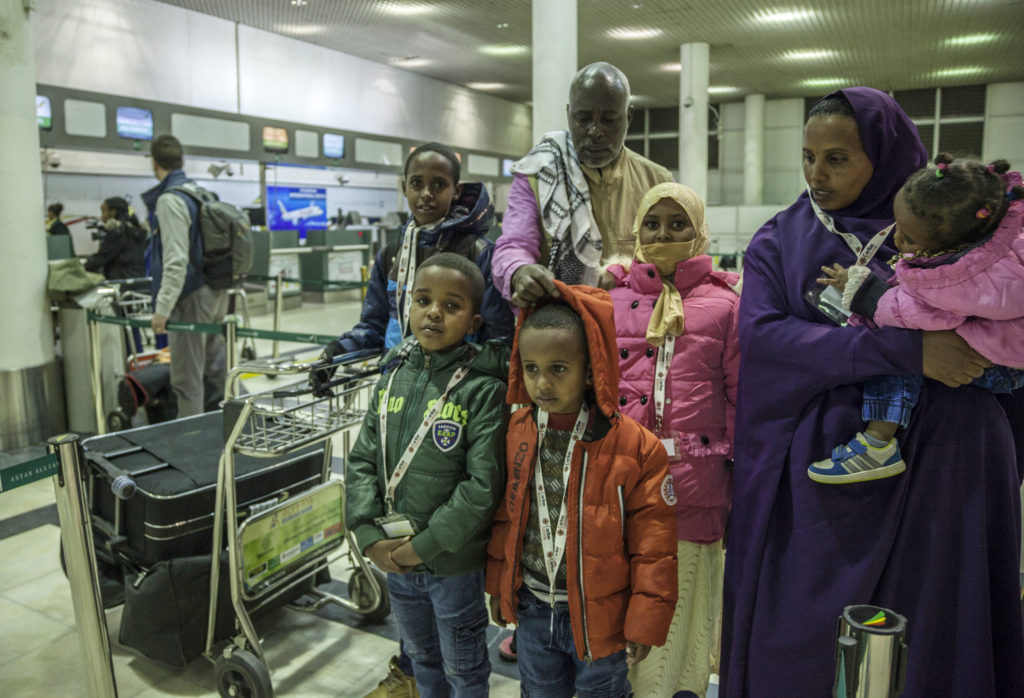
Towards a New Narrative on Migrants and Refugees
For ICMC Europe Head Petra Hueck, promoting private sponsorships of vulnerable refugees in Europe is more important than ever. With grassroots organizations active in welcoming refugees from day one, expanding Europe’s tradition of welcome becomes a journey of transformation for both newcomers and host communities.
“When people in receiving countries engage with refugees, a new narrative takes shape, one that defies the many news reports painting refugees and migration in a negative light.”
Hueck spoke at a hearing at the Italian Parliament in Rome that took stock of humanitarian corridors in Italy, a complementary admission pathway like private sponsorships.
Private sponsorship programs must function in addition to, not as a replacement for, the traditional resettlement services provided by a State, she reminded the Members of Parliament. And noted that, in the current political climate, it is particularly crucial that such programs can thrive.
“This engagement can create a much better world than the one envisioned by many politicians.”
Ensuring That Governments Assume Their Responsibilities
The Global Compact for Safe, Orderly and Regular Migration (GCM) adopted in December 2018 by some 160 UN Member States is a landmark but non-binding agreement.
Together with other NGOs, ICMC called on States to lead in implementing the GCM and using it as a tool to protect people on the move. It stressed that the Compact is already acting as a guide for civil society, migrants and communities in Asia, Central America and the Middle East and North Africa – often in partnership with governments.
In doing so, ICMC and other NGOs raised concerns about increasing human rights violations and the criminalization of migrants and those helping them.
Encouraging Global Solidarity
When over 180 UN Member States adopted the Global Compact on Refugees (GCR) in December 2018, they agreed to better share responsibility to protect and find durable solutions for people forced by war, persecution or violence to flee their home country.
In 2019 the focus shifted from adoption to implementation. The Global Refugee Forum (GRF) was launched to take stock of progress, with the first GRF held last December, the next to follow in two years’ time and every four years after that.
In a call for global solidarity ahead of the GRF, ICMC, together with other faith-based organizations, renewed commitments to partner with the international community to realize the potential of the GCR. The faith-based actors vowed to continue working to change negative narratives about migration and fight xenophobia.
At the first GRF in December, States along with other stakeholders were asked to make concrete pledges to meet refugees’ needs and show solidarity with host countries.
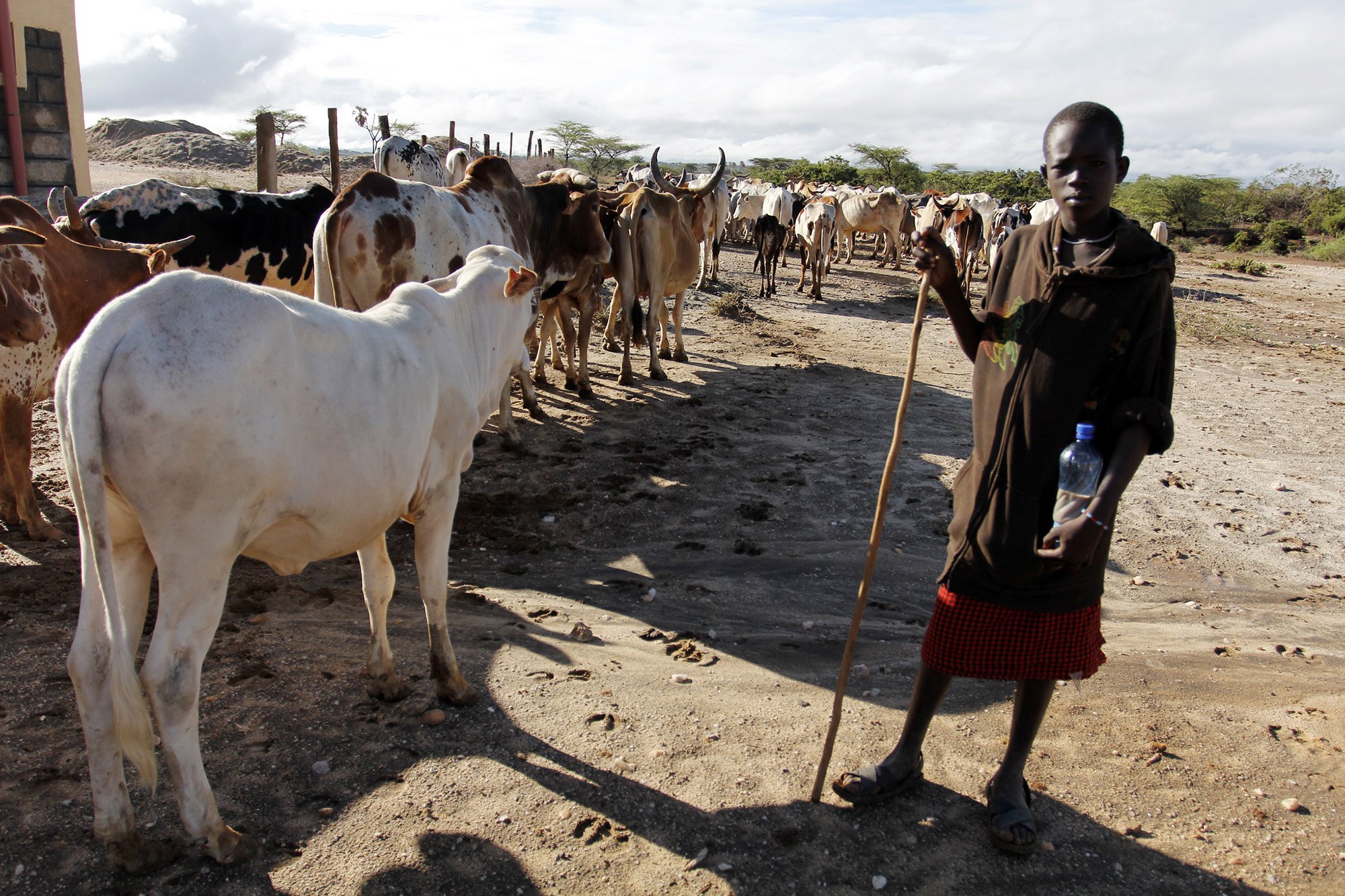
Protection for the Climate-Displaced
Climate change is delivering a double punch when it comes to migration. Not only are climate-related impacts displacing people, those effects also are hitting developing countries disproportionately hard – places with scarcer resources and often insufficient coping mechanisms. And many States have resisted extending protection to the climate-displaced. The progressive nature of environmental degradation means that displacement is difficult to predict and respond to, forcing many people to remain irregular and without access to basic services. ICMC co-sponsored a side event on climate change-displacement during the 41st session of the Human Rights Council to advocate for collective action to protect those affected.
ICMC Europe and other NGOs called on EU Member States to take the lead in putting the GCR into action by bringing to the Forum a minimum collective pledge of 30,000 resettlement places in the coming year. The NGOs advocated for this new pledge to be implemented during 2020 and for a further commitment to increase resettlement places each year at a stable rate.
Immediately preceding the Forum, ICMC co-organized a roundtable discussion to explore ways faith-based organizations can build a culture of encounter with refugees and how governments can make concrete contributions towards refugee inclusion.
At the GRF, ICMC pledged increased support to the ICMC-UNHCR Deployment Scheme, committing to send more experts to bolster field operations of the UN Refugee Agency as it seeks to meet targets outlined in the GCR’s Three-Year Strategy for Resettlement and Complementary Pathways.
ICMC joined with international NGOs at the UNHCR Annual Tripartite Consultations on Resettlement to urge States to take leadership with long-term commitments. In doing so, they noted that the need for resettlement continues to outstrip available places, with critical consequences for vulnerable refugees. And they reiterated the essential role of resettlement as an indispensable protection tool for refugees at risk.
The NGOs called for further expansion of complementary admission pathways and a heightened focus on integration and inclusion. Such efforts must be holistic and collaborative – supporting refugees to rebuild their lives with the involvement of the communities that welcome them.
ICMC welcomed the new Sustainable Resettlement and Complementary Pathways Initiative (CRISP) launched by the International Organization for Migration (IOM) and UNHCR. One of its aims is to increase the number of new States offering resettlement places.
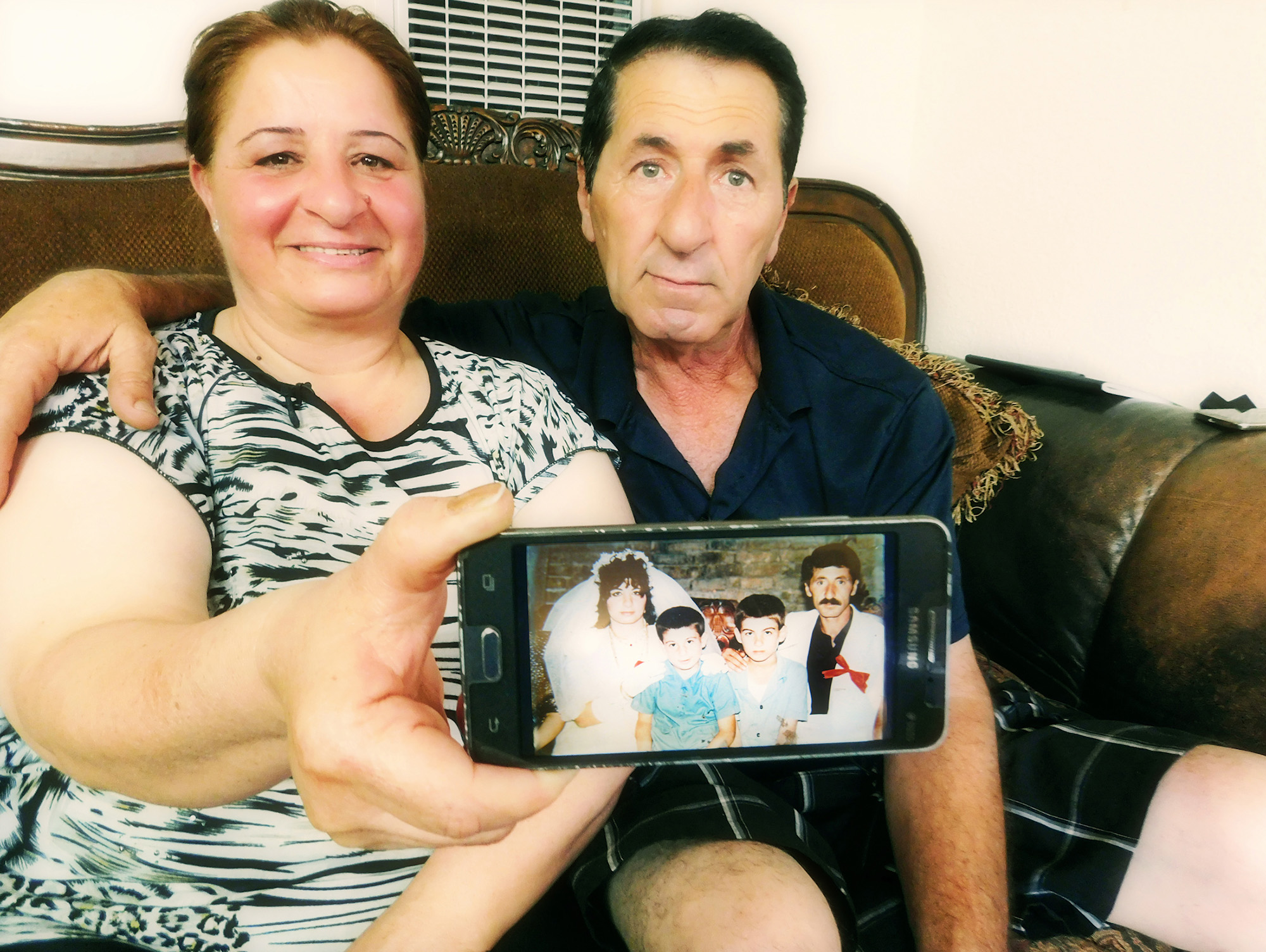
Advocating for Refugee Resettlement in the U.S.
In July 2019 reports emerged of the U.S. government’s potential plans for drastic cuts to its resettlement program. A historical leader in welcoming forcibly uprooted people through its Refugee Admissions Program, the country was considering further reducing the number of admissions, possibly to nearly zero for the following fiscal year. ICMC urged that the program be maintained, pointing to its crucial role in giving life-saving protection to thousands of people fleeing war, persecution and violence. The appeal lifted up the vital contributions that resettled refugees make to their host communities.
ICMC advocated for refugees to have a seat at discussion and decision-making tables in order to root action in the realities of forcible displacement.
Protecting the Most Vulnerable
ICMC advocacy in 2019 focused on child protection, and, in particular, on children migrating alone.
ICMC underlined the destructive effects of children being separated from their families. It urged broader family reunification, including grandparents and other members, and promoted alternatives to child detention.
At the International Consultations on Migration, Asylum and Refugees, ICMC recommended listening to children as the foundation for deciding the most beneficial course of action for a child on the move. This means hearing what children feel they need, what they want for the future and believing in their right to self-determination.
ICMC raised as a concern during the IOM Council the increasing number of children crossing international borders alone who have been abused by traffickers. It emphasized the life-saving impact of resettlement for such refugees at risk and called for more government resettlement places and expanded complementary admission pathways like family reunification.
ICMC also proposed that the IOM include children as a priority concern in its new institutional strategy to ensure their particular protection needs do not fall through the cracks.
Keeping EU Policy Humane and Effective
In conjunction with its call for a collective EU resettlement commitment at the Global Refugee Forum, ICMC Europe noted with concern that resettlement is increasingly used as a tool to manage migration. Together with other NGOs, ICMC Europe underlined that resettlement’s purpose is first and foremost to offer protection and a long-term solution for refugees.
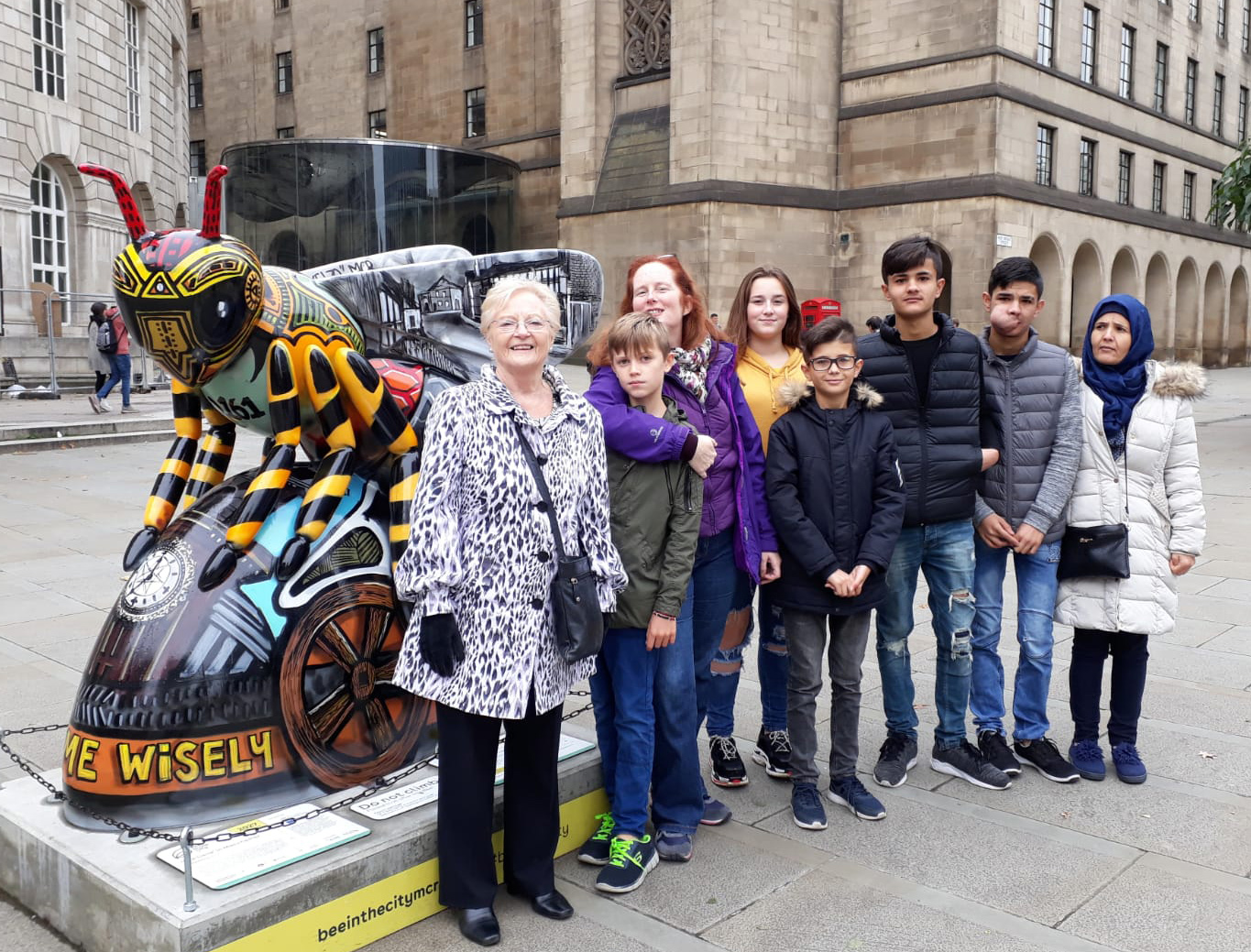
A Call for a New Lens
When considering refugee resettlement, does obligation or opportunity come to mind? Bishop Paul Butler from the Anglican diocese of Durham, U.K., an ICMC partner in the SHARE Network, urged government representatives and other participants at the UNHCR Annual Tripartite Consultation on Resettlement in July to shift their lens from one of burden to that of gift. “[Refugees] are amongst those who most want to succeed and contribute well to the life of a nation that offers them sanctuary, freedom and hope.” He advocated for a contribution-focused mindset to be applied more widely in the overall asylum application process.
Responding to proposed changes to the EU’s directive on returns, ICMC Europe urged keeping respect for human rights and dignity – foundational EU values – at the fore. Specific issues included truly voluntary returns, proper reintegration measures and detention as last resort.
ICMC Europe and other civil society organizations appealed to the EU to agree on a principled response to migrants in distress in the Mediterranean that respects EU treaties and international law. In doing so, they called for a total support of rescue operations and timely, safe disembarkment. Further, the NGOs asked for an immediate and absolute suspension of returns to Libya.
ICMC Europe advocated for a humane and effective use of the EU’s migration and asylum budget, as negotiations for a new designated fund got underway. Together with other NGOs, ICMC Europe called for resources to bolster partnerships among civil society organizations and local and regional authorities as key actors to promote inclusion across the region. They also emphasized the importance of coordination between relevant EU funds. And they proposed a minimum funding target for refugee integration at the national level.
Member's story
An Obligation to Save Lives
Catholic bishops in Europe are speaking up loud and clear on the duty to protect and welcome migrants, as snapshots from April 2019 show.
The President of the Italian Bishops’ Conference (CEI), Cardinal Gualtiero Bassetti, did not mince words when he spoke at a meeting at the Centro Astalli, a Jesuit ministry to migrants and refugees.
“An offense against humanity,” he named every type of migration-related death – whether at sea or in the desert or as a result of violence in detention centers. He called for uprooted people to be rescued, not turned back or held in unsafe third countries.
Though the number of deaths, along with overall migration, have decreased in the past four years, the Mediterranean remains a dangerous route to Europe for people on the move. In 2019 at least 1,283 people lost their lives attempting to cross by sea, about 45 percent of the total of deaths the preceding year, according to the International Organization for Migration. Since 2014 at least 19,164 migrants have died on the three main Mediterranean sea routes.
Also in April, the ICMC national member organization in Italy advocated for the Church not to close her eyes to the suffering of people on the move, even if this is an unpopular stand in Europe, where xenophobia has been on the rise.
“The Church needs to actively contribute to a culture of welcome and integration and to move away from the indifference about the daily suffering of those who drown in the Mediterranean or are tortured in detention in Libya,” the Italian bishops said in a press release.
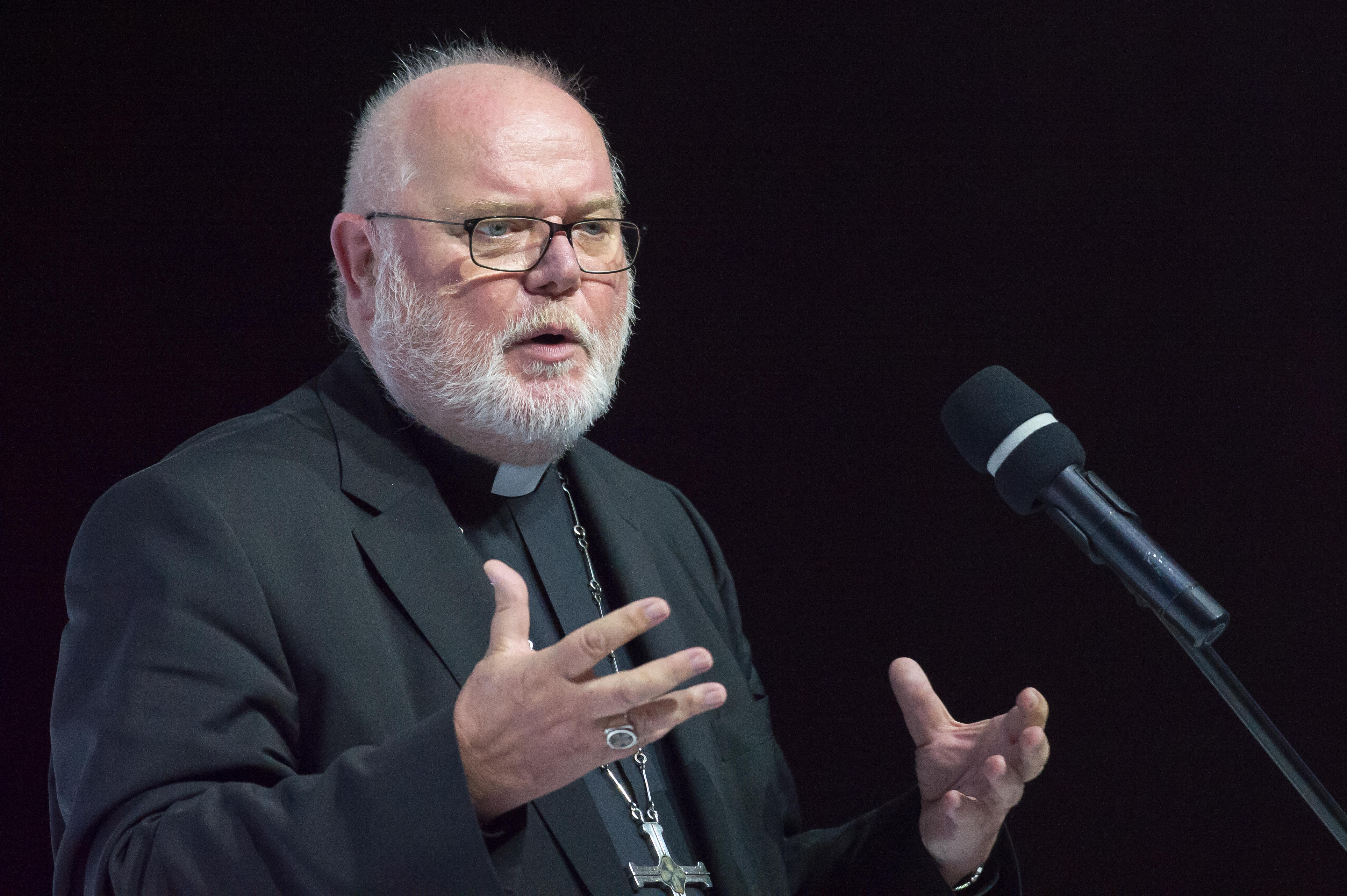
Appealing to European governments to uphold ethical and legal imperatives, the German Bishops’ Conference spotlighted saving migrants’ lives at sea. In early April, its President, Cardinal Reinhard Marx, presented the Lew Kopelew Prize for Peace and Human Rights to the captain of the sea rescue Mission Lifeline, Claus-Peter Reisch.
If governments were not able to ensure the rescue of migrants in peril at sea, Cardinal Marx said, civil society initiatives like Mission Lifeline must at least be allowed to act in their place, not be blocked from saving lives. Captain Reisch and others from civil society organizations act “first and foremost, to save human lives, but also to challenge political leaders.”

